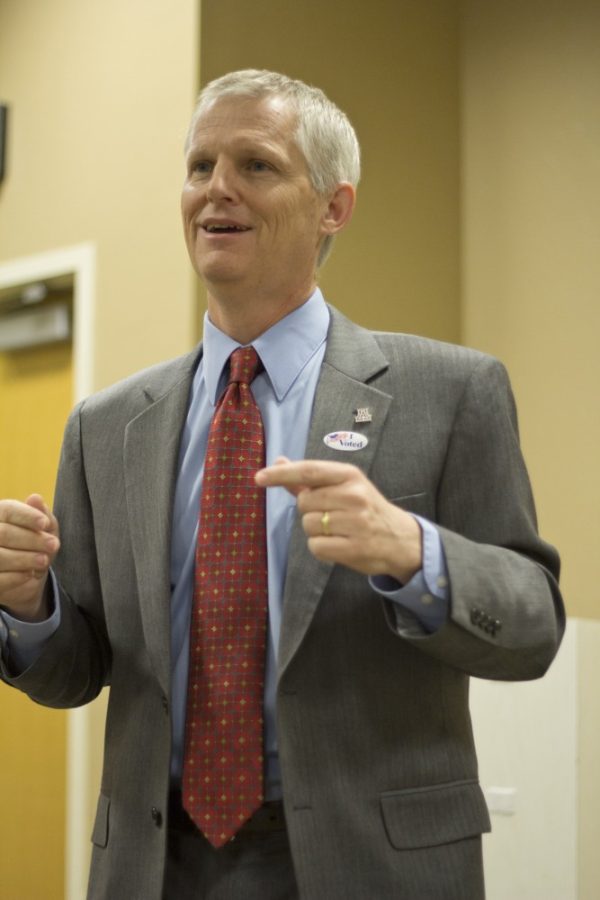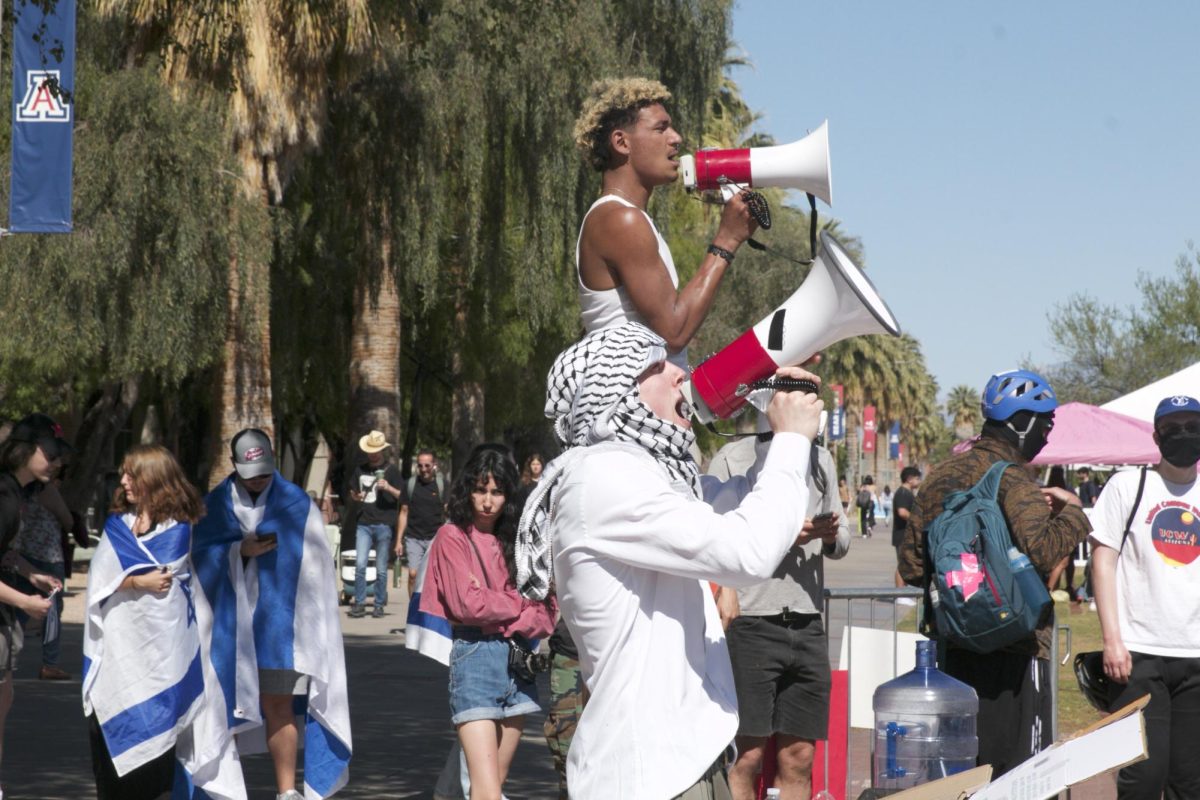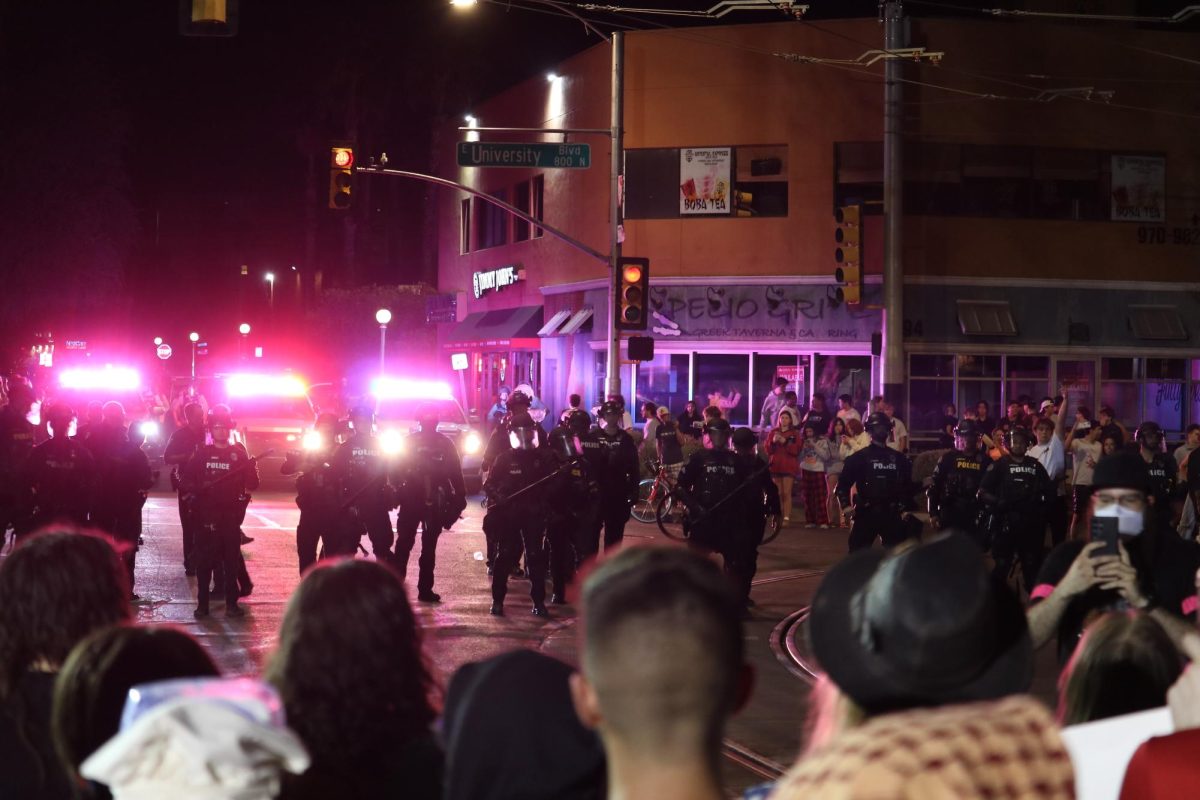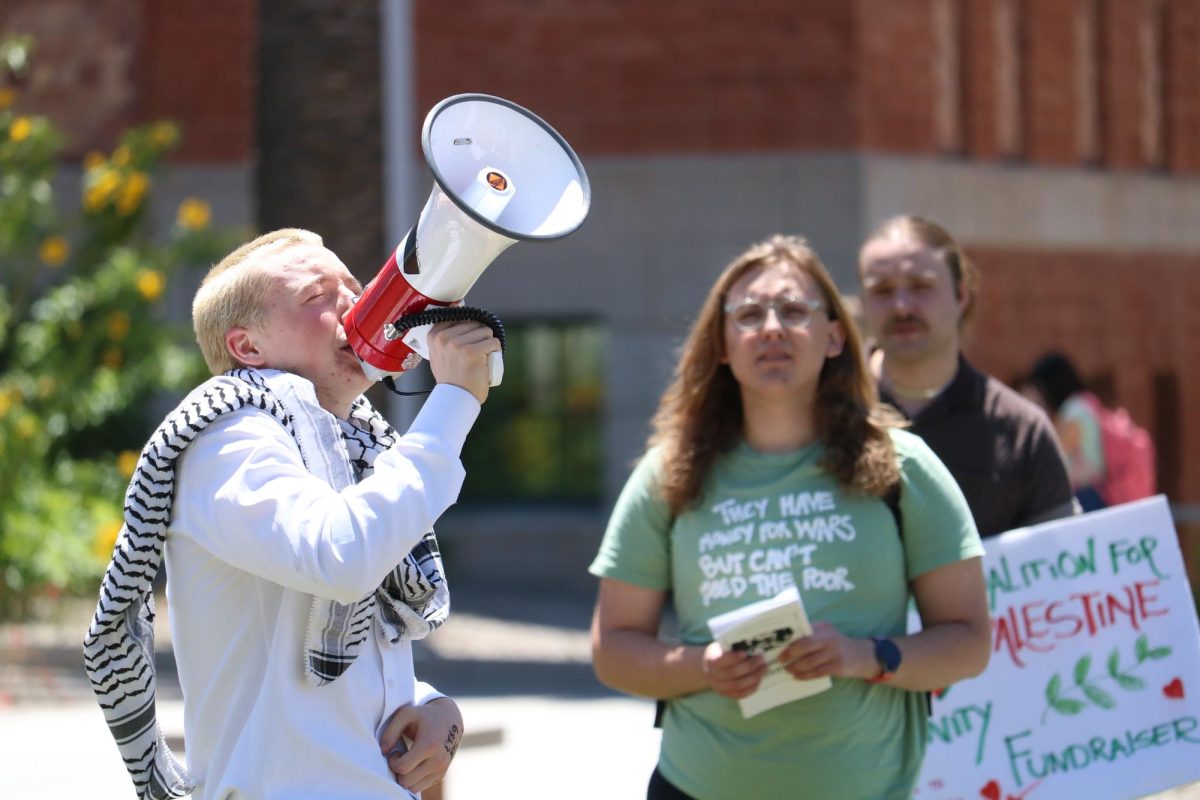A town hall meeting allowed the UA provost to address the campus community on the guesswork of predicting the university budget.
Senior Vice President for Academic Affairs and Provost Andrew Comrie answered questions at the monthly staff advisory council meeting about work on strategic planning as well as his responsibilities in dealing with on-campus issues. After a brief introduction, Comrie opened the floor for questions from audience members.
A particular focus of the meeting centered on staff raises, but Comrie also answered questions regarding performance evaluations and his decision to apply for a permanent position as provost.
When discussing staff raises, Comrie explained the difficulty in getting resources for the university to accomplish that. He listed the three big income sources as research, tuition and state aid.
However, because research money is restricted funds, Comrie said tuition and state allocation would help with raises. Additionally, recent budget cuts led to a drop in what the university received from the state, Comrie said.
“Now the question is, ‘How do I find another 10 or 20 or whatever million dollars to fund a raise?’” Comrie said.
Comrie added that it’s the president’s responsibility as well as his own to speak with the Arizona Board of Regents, who in turn could speak with the legislature to ask for more money.
Although Comrie commented that tuition has seen huge increases over the past few years, he also said further increases might have to be considered.
“We have really taxed the students hard on tuition in the last few years and I think there’s less political will to do a whole lot of tuition,” Comrie said, “But that has to be in the discussions as well.”
Comrie also commented on guesswork when it comes to what next year’s income will look like. The budget is made accordingly, with guesses about what state income will be a year from now, as well as what tuition might be.
Comrie asked audience members to give their best guess about the money that would be allocated, which he said is “as good as the president’s.” He said this is the type of guesswork that happens when planning a raise.
“Now you can understand the challenges of trying to do this,” Comrie said. “We want to do it, but only when we can make sure it’s not a hollow promise.
Someone then asked about the issue of supervisors who fail to complete performance evaluations, which could impact raises for some employees. Comrie said it is necessary to ensure every employee receives feedback.
“We should have performance evaluations and feedback just for their own sake, because that’s how you run a good organization,” Comrie said. “People should know their staff and how they’re doing. It’s a piece of effective communication.”
Comrie discussed the possibility of sending a memo regarding performance evaluations, but also commented on the benefit of employees going to their supervisors and asking for feedback on their work.
As the meeting drew to a close, Comrie talked about his decision to apply for provost. Although he was not initially able to be a candidate for the position, now, with Hart’s approval for an interim provost to apply, Comrie has begun the application process.
“I come to work every day looking forward to whatever particular problem I can solve or whatever opportunity we can take advantage of,” Comrie said. “I love what I’ve been doing the last few months.”









